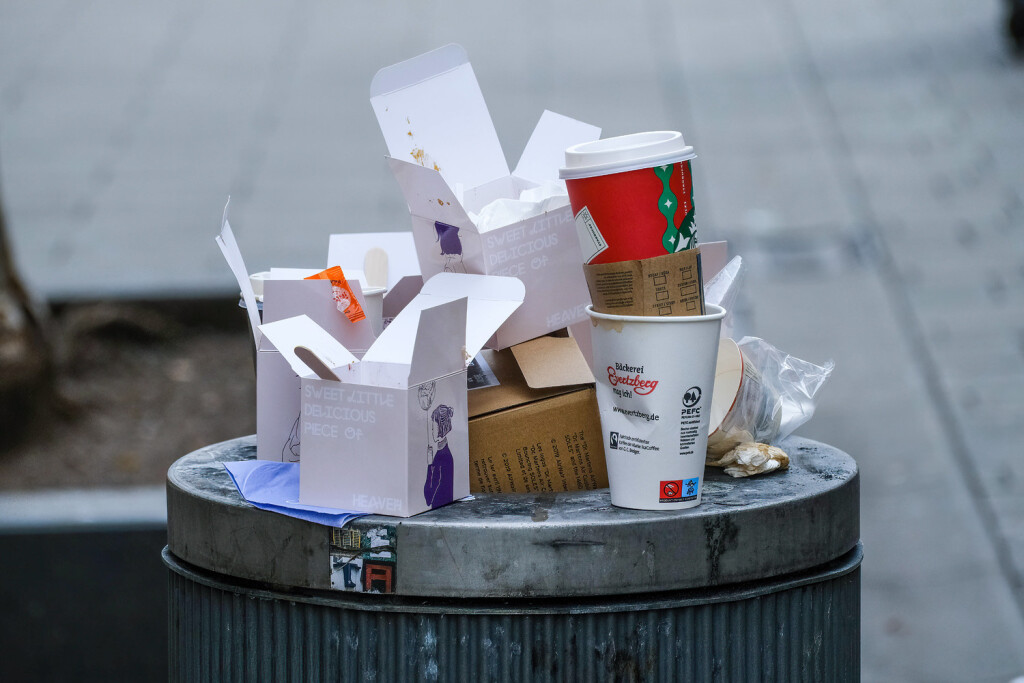Packaging Ordinance: first trilogue at beginning of January

Just in time for the winter break, the Council has also adopted its position on the Packaging Ordinance. This means that the trilogue negotiations can begin in January. These are likely to be difficult, especially when it comes to the issues of single-use bans and reusable quotas.
Right at the start of the new year, the Council, Commission, and Parliament will begin trilogue negotiations on the EU Packaging Regulation. Due to the controversial positions on the law, it is uncertain how long the negotiations will last. The negotiators are aiming to reach an agreement before the end of the legislative period.
The Parliament adopted its position in November, which significantly weakened the Commission's draft in many areas. The Environment Council, however, which adopted its general approach at the beginning of the week, largely upholds the ambitions of the Commission's draft.
Council position more ambitious in parts
"The biggest sticking point in the trilogue negotiations will certainly be the question of what measures can be taken to reduce the mountains of waste ", Delara Burkhardt (S D) told Table.Media. As shadow rapporteur, the Social Democrat helped negotiate the Parliament's position. "This concerns, in particular, the bans on unnecessary single-use packaging, for example when consuming food and drinks in restaurants, reusable quotas for drinks and transport packaging and requirements against oversized packaging that contains more air than product."
Fortunately, the EU environment ministers had kept the environmental ambitions of the Commission's proposal largely intact, said Burkhardt. "Unfortunately, the same cannot be said of the European Parliament." A right-wing majority in the European Parliament had given in to almost every lobbying wish. "Numerous deletions and exemptions make me doubt whether the Parliament's position can achieve the desired waste reduction at all." Burkhardt therefore hopes that the final law will be closer to the Council's position in the areas of packaging minimization and reusable packaging.
Parliament removes bans and adds new ones
Specifically, it concerns Article 22, in which the Commission proposes a ban on certain single-use packaging formats. These include plastic packaging for drinks six-packs, fresh fruit and vegetables weighing less than 1.5 kilograms, and disposable containers for takeaway food in restaurants.
In its position, Parliament deletes several of these bans and adds other bans in their place. These include, for example, bans on single-use shrink-wrap packaging for suitcases and unnecessary secondary packaging such as the cardboard box that encases a tube of toothpaste. It adds an exemption clause for companies that collect 85 percent of single-use packaging waste for recycling and can prove that single-use packaging is more environmentally friendly by means of a life cycle analysis. The Commission is also not to be given the option of adding new bans via delegated acts.
In its approach, the Council adopts the Commission's proposals with a few amendments: The ban on single-use fruit and vegetables, for example, should only apply to plastic packaging; the Commission should be able to add new bans, but only via the ordinary legislative procedure.
Small-scale negotiations on reusable quotas
The second is Article 26 of the Commission's draft, which provides for reusable quotas for some packaging formats. Parliament is removing the quotas for the take-away sector and adding far-reaching exemptions for the other sectors. These make the article almost meaningless.
The Council adopts the Commission's proposals and adds, for example, an exception for wine and the possibility for companies to join forces to achieve the reusable beverage quotas.
Very detailed negotiations are therefore awaiting the three EU institutions. It will be very difficult to reach an agreement on the two articles.
First trilogue planned for Jan. 10
Negotiations on the chemical substances that may be contained in packaging materials will also not be easy. Parliament is calling for a ban on harmful perpetuation chemicals (PFAS) and bisphenol A in packaging that comes into contact with food and therefore also indirectly with people. The Council is initially calling for an investigation by the Commission with a view to possibly banning these chemicals in the future.
The trilogue negotiations are due to begin in January. According to information from Table.Media, the first political meeting is planned for Jan. 10 but has not yet been officially confirmed.
With the exception of the "right side of the European Parliament", all three institutions are in agreement that they want to conclude the negotiations quickly and vote before the European elections in June, reports Delara Burkhardt. "In this way, we can quickly create planning security for companies that will have to meet the first targets of the regulation in just a few years."
Letzte Aktualisierung: 24. Juli 2025

